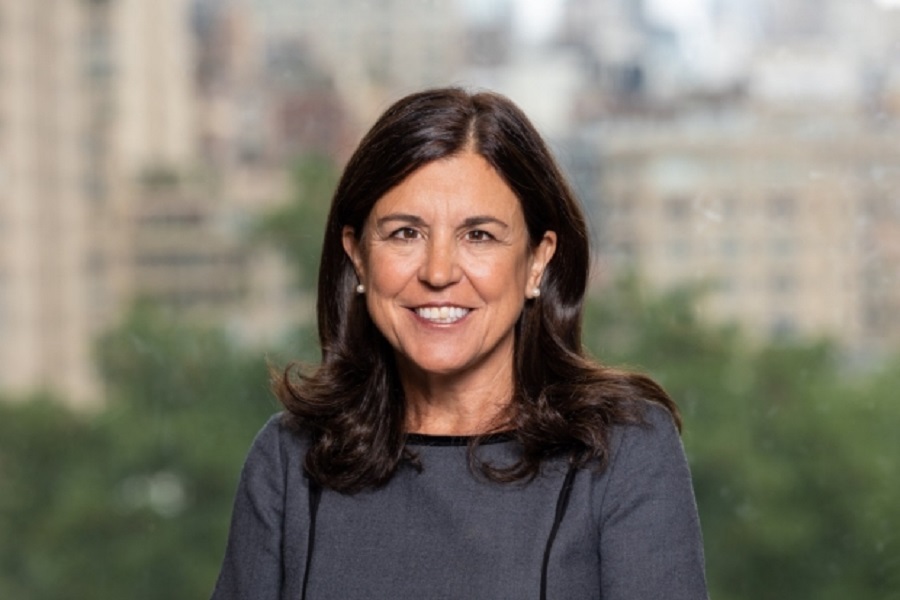New York University President Linda G. Mills Named Georgina Dopico as NYU’s Provost

NYU President Linda G. Mills today named Georgina Dopico—an award-winning scholar of the literature, history, and culture of early-modern Spain; a member of NYU’s faculty since 2000; and interim provost since 2022—as provost, effectively immediately. Dopico was named to the chief academic officer position following a 7-month international search that reviewed dozens of strong candidates.
President Mills said, “Sometimes the best choice is the one that is closest at hand. Accomplished, exceptionally smart, strategic, thoughtful, and warm, Gigi Dopico stood out even in a field of strong candidates. Respected in her field, trusted and admired as a colleague, and esteemed as a leader, she is a ceaseless advocate for academic excellence, our faculty, and our students. Since I first became president, Gigi has been an outstanding partner as interim provost; I couldn’t be happier that this partnership will continue.”
A member of the NYU faculty in the Department of Spanish and Portuguese Languages and Literatures since 2000, Professor Dopico served as dean for the humanities beginning in 2016. In that role, she created the Bennett-Polonsky Humanities Labs; created the First Book Publishing Colloquium for faculty; launched a Community College Transfer Opportunity Program for NYU’s College of Arts and Science; launched programs to strengthen enrollments in the humanities, and developed three-year pathways to graduation in humanities departments. In 2018, Professor Dopico moved over to the Provost’s Office, where she played a vital role in the University’s response to COVID-19, helping to bring unprecedented flexibility and support to our educational mission during the pandemic, and was responsible for launching NYU Reads, overhauling student course evaluations, and initiating an academic integrity effort.
Since assuming the role of interim provost in 2022, she has led the Office of the Provost in creating a number of important initiatives: the Academic Excellence Equity Action to eliminate educational disparities through the introduction of high-impact practices and resources (including free Kaplan test prep for all NYU students); a new cross-cutting initiative on Migration and Immigration and (in partnership with New York City ) the NYU Asylum Project; a Center for Undergraduate Research to expand access to and support of undergraduate research; increasing graduate-student housing and stipend levels; the Mid-Career Faculty Initiative; the launch of three new provostial centers; the creation of the Culture Care Grants through the Office of Work-Life; the relaunch of the Climate Initiative and of NYU x NYU; the launch of NYU’s Teaching Quality Committee and of an Office for Faculty Awards, and much more.
She is the author of Perfect Wives, Other Women: Adultery and Inquisition in Early Modern Spain (Duke University Press, 2001) and Unstable Anatomies: Bodies and Theaters of Proof in Early Modern Spain (Ediciones Polifemo, 2024/forthcoming) and the co-editor of three important scholarly volumes, including the first edition of a 17th-century Spanish dictionary.
Her work focuses on a time and place—early modern Spain and its global empire—when exclusions based on religion and race (and/or a racialized conception of religious faith) were institutionalized as part of the process of nation formation. Many of the questions her work examines in the context of the 15th, 16th, and 17th centuries—from antisemitism and Islamophobia to exile, national sovereignty, torture, and purity of blood—remain hauntingly relevant today. She has authored a number of articles and served as coordinating editor of the Journal of Spanish Cultural Studies from 2006 to 2015. Among the many honors Professor Dopico’s work has received were research fellowships from Spain’s Ministry of Culture, the Modern Language Association’s Katherine Singer Kovacs Prize for Perfect Wives, a Dirección General del Libro award, the Samuel and Ronnie Heyman Prize, and a Whitney Humanities Center Fellowship at Yale.
She received her undergraduate degree, cum laude, from Harvard, and her MA, MPhil, and PhD—all with highest honors—from Yale, where she was on the faculty before coming to NYU.

